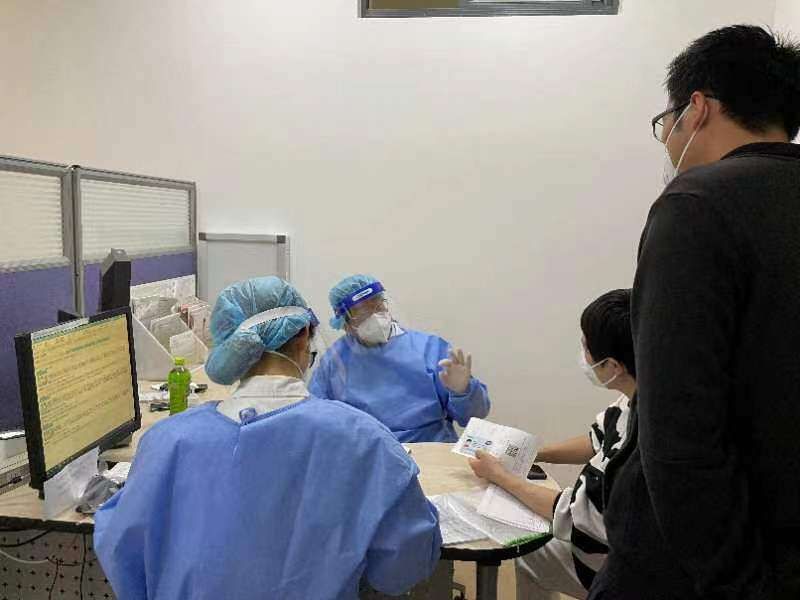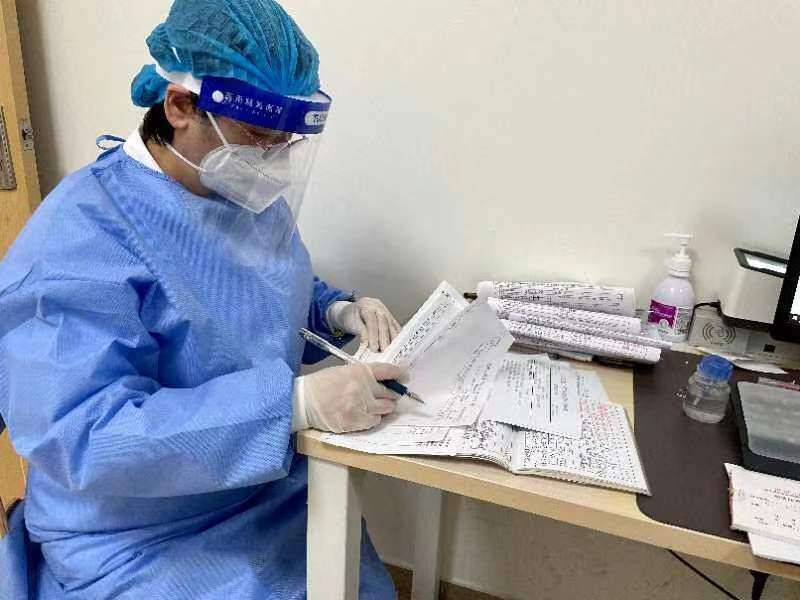China Youth Daily Client News (China Youth Daily, China Youth Daily reporter Wang Yejie) Under the epidemic situation in Shanghai, how to see a doctor and where to see a doctor have become the focus of Shanghai citizens. The reporter recently learned from the Renji Hospital Affiliated to Shanghai Jiaotong University School of Medicine (hereinafter referred to as “Renji Hospital”) that on the basis of fully opening general outpatient clinics, the hospital began to propose that “expert outpatient clinics and special needs outpatient clinics should be fully opened”. To ensure the multi-level medical needs of the people under the epidemic.
During the upcoming “May Day” holiday, Renji Hospital will not be closed. On May 1st, Renji Hospital’s “Convenient Dispensing Clinic” will continue to provide dispensing services for the majority of chronic disease patients, family members, and community dispensing volunteers; during the rest of the holiday period, general clinics and specialist clinics will be open according to the corresponding working day schedule. diagnosis.

The scene of Renji Hospital’s specialist outpatient clinic. (Photo courtesy of Renji Hospital)
The diagnosis and treatment of special groups such as pregnant women and tumor patients cannot be delayed. It is understood that since the opening of the special needs outpatient clinic of Renji Hospital, some experts in the departments of obstetrics and gynecology, oncology and other departments have returned to the “full” state before the epidemic.
“Pregnant women need regular obstetric examinations. After the epidemic is closed, many people, especially some pregnant women with multiple pregnancy complications, cannot see the outpatient clinic as originally planned, and they are very anxious.” Renji Professor Lin Jianhua from the Department of Obstetrics and Gynecology of the hospital introduced. After learning that the hospital’s special needs outpatient clinic was open, she immediately notified in the WeChat group that mothers who were more than 37 weeks pregnant and who were particularly ill would come to the hospital for inspection in batches.
This group was established at the beginning of the epidemic control. The group included more than 200 pregnant and lying-in women in special needs clinics. The establishment of the WeChat group allows doctors to keep abreast of the situation of each mother and reply to their questions. Although the special needs clinics suspended medical services after the closure, the online consultation and answers from experts have never stopped. “The group has specially arranged three young doctors to answer, and they have to reply to more than 1,000 messages a day. Although it is tiring, active doctor-patient communication can make pregnant women feel at ease.” Lin Jianhua said.
Professor Di Wen, chief expert of Renji Hospital and Department of Obstetrics and Gynecology, said that in general, time-limited examinations, such as NT examination, Down’s screening, and large-row abnormality examination, should be performed within a specified time. Come to the hospital to complete. Therefore, specialist outpatient clinics should be opened as much as possible, in order to minimize the impact of the epidemic closure and control on pregnant and lying-in women.

Renji experts are reviewing the patient’s past medical records. (Photo courtesy of Renji Hospital)
Similarly, for cancer patients, long-term and stable examination and treatment are important conditions for life extension. The disease is complex and the treatment cannot be delayed; the new patients urgently need to obtain the pathological report and determine the treatment plan, which is the characteristic of this group.
“On the first day of the recovery of the general outpatient clinic, we saw more than 90 patients in half a day due to the pressure of many patients in the front area. Usually, there are fifty or sixty patients. The number is full.” Wang Liwei, director of the Department of Oncology, introduced that since the epidemic in March, the oncology ward of Renji Hospital has never stopped accepting patients. Under the requirements of ensuring epidemic prevention and control, a day-time chemotherapy clinic has also been opened, and about 30 patients are admitted every day. .
What impressed him was that at the beginning of March, a patient with pancreatic cancer in his 60s who was treated in a foreign hospital was transferred to Renji Hospital because of the epidemic who could no longer receive treatment. After regular treatment, her tumor has shrunk significantly, she is able to eat, and can walk to follow-up visits by herself.
Zhang Binyuan, director of Renji Outpatient and Emergency Office, said that now, the number of outpatient visits in Renji East Branch alone has reached nearly 3,000 per day. Disease departments are mostly. He said that the hospital is also the first in the city to open various types of specialized operations that are in high demand, such as peripherally inserted central catheter (PICC), stoma, dressing change, and endoscopy, which has solved the urgent needs of many patients. Regardless of whether patients were treated in this hospital before the epidemic, they can come to the hospital to complete these specialized operations.
Source: China Youth Daily Client